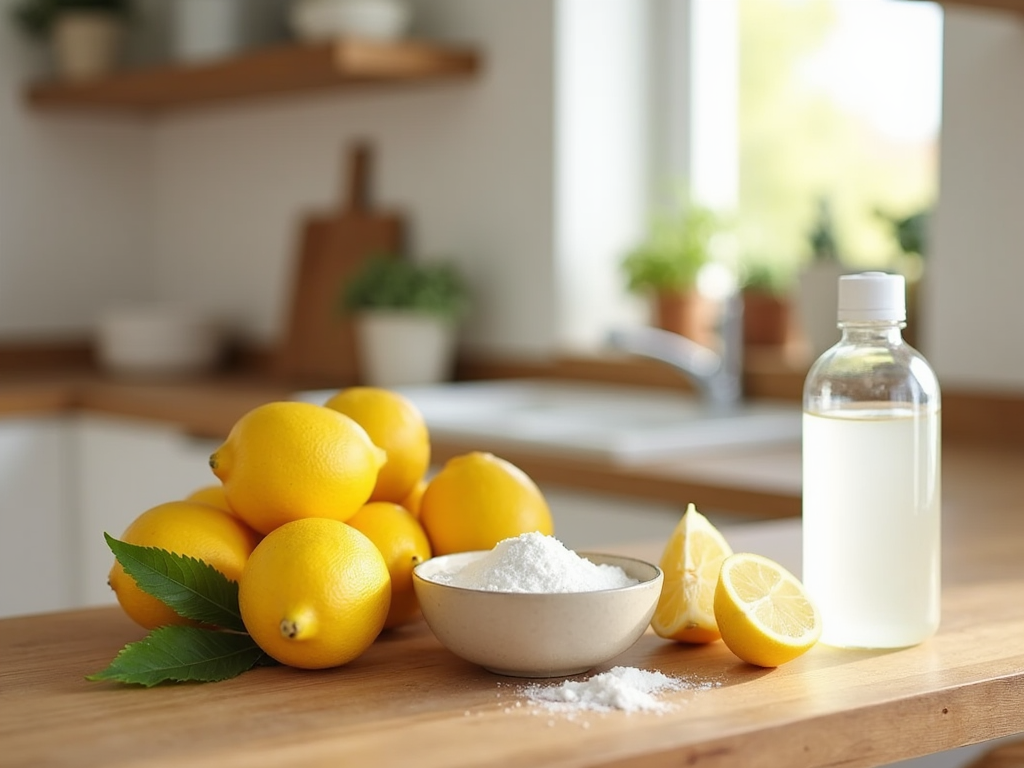Keeping your whites bright and crisp without resorting to harsh chemicals like bleach is entirely possible. In this article, you’ll discover ten effective, natural alternatives to bleach that you can use to whiten your laundry. From common kitchen items to store-bought solutions, these methods are easy, affordable, and environmentally friendly.
Baking Soda Magic

Baking soda is a household staple with properties that can enhance your laundry routine significantly. This fine powder boosts the effectiveness of your detergent and naturally whitens your whites. Unlock its power by adding half a cup to your laundry load. It works by balancing the pH levels in water, which optimizes the detergent’s cleaning capabilities. Additionally, baking soda functions as a softener that leaves fabrics feeling fresh and soft.
To use baking soda, simply sprinkle it directly onto your laundry in the washer or dissolve it in water for pre-soaking stubborn stains. It’s a simple tweak to your routine that yields impressive results without damage to fabrics or the environment.
Harnessing the Power of Vinegar

White vinegar is another budget-friendly ingredient found in most kitchens, offering several benefits when used in laundry. Unlike bleach, vinegar is non-toxic, biodegradable, and safe for all fabrics. The acetic acid in vinegar brightens whites and breaks down stains and residues that regular detergent might miss.
To use vinegar in your laundry, add a cup of white vinegar to the rinse cycle. This will not only whiten your clothes but also soften them and reduce static. If you prefer to combat specific stains, apply vinegar directly to the stained area and let it sit for at least an hour before washing.
Sunshine for Stain Removal
Think beyond chemicals and utilize sunlight as a natural bleaching agent. The ultraviolet rays from the sun break down stains and whiten fabrics safely. This method is ideal for natural fabrics like cotton and linen, which dry easily under the sun.
After washing your clothes, hang them outside in the sunlight to dry. Ensure they are spread evenly and avoid prolonged exposure, which could lead to fading over time. For those living in areas with limited sunshine, consider timed sun exposure for effective results.
Lemon juice is a highly effective natural whitener due to its citric acid content. It’s a great alternative to bleach, especially for delicate fabrics. You can incorporate lemon juice easily into your laundry practices for that fresh, bright appearance.
- For everyday whitening, add a half-cup of lemon juice to the wash cycle.
- To tackle stubborn stains, create a mixture of lemon juice and water and apply directly to the stain.
- Consider mixing lemon juice with baking soda to create a potent paste for treating specific spots.
This method leaves your clothes not only white but also with a refreshing, citrusy scent that is a natural deodorizer.
Try Out Hydrogen Peroxide
Often regarded as an eco-friendly bleach alternative, hydrogen peroxide is another powerful option in your laundry arsenal. Its oxidative properties effectively lift stains and enhance the brightness of white fabrics. It is safe for most fabrics and can be used almost like conventional bleach.
To utilize hydrogen peroxide, add a cup to your laundry along with the detergent. For spot treatment, apply it directly onto the stain and wait 10-15 minutes before washing. Be cautious with colored fabrics, as hydrogen peroxide could cause fading.
Conclusion
Whitening laundry without bleach is easier than you think. By incorporating natural products like baking soda, vinegar, sunlight, lemon juice, and hydrogen peroxide into your routine, you can maintain bright whites without the negative impact of bleach. These methods are not only effective but also kinder to the environment and gentler on your clothes. Adopt these alternatives to keep your whites dazzling and reduce your ecological footprint.
Frequently Asked Questions
- Can I use vinegar and baking soda together in the laundry? While both vinegar and baking soda are effective whiteners individually, they neutralize each other’s effects when combined. It’s best to use them separately — baking soda during the wash and vinegar during the rinse.
- Is lemon juice safe for all types of fabrics? Yes, lemon juice is generally safe for most fabrics, especially natural ones. However, it is always wise to spot-test on a small, inconspicuous area first to ensure there is no adverse reaction.
- How often can I use hydrogen peroxide in my laundry? Hydrogen peroxide can be used regularly, but it’s important to monitor for any signs of fabric wear. For routine washes, use it as a whitening booster rather than a constant necessity.
- What is the best way to dry delicate whites after washing? The ideal way to dry delicate whites is to lay them flat on a towel and allow them to air dry naturally. This method reduces stress on the fibers and helps maintain the garment’s shape.
- Does using sunlight help with odors too? Yes, sunlight does help with odors. The UV rays not only whiten clothes but also have antibacterial properties that can help neutralize unpleasant smells.
